#christina stead
Text

About myself - no. I'm unimportant, an observer, a wandering animal.
-- Christina Stead
(Cluj, Romania)
#observe#insignificant#unimportant#christina stead#travel photography#cluj#cluj napoca#Romania#switzerland#observer#distance#quote
243 notes
·
View notes
Text
‘What use is ruin?’ asks Emily Wilkes, protagonist of I’m Dying Laughing, the posthumous novel by the Australian Marxist author Christina Stead. ‘Communists should not be ruined: they should stay on top.’ Unfortunately for Emily, ruin is the abiding theme of Stead’s impressive and neglected oeuvre. Her last novel, left unfinished and assembled from drafts by her literary trustee after her death in 1983, occupied her for at least the final thirty years of her life. Its incompleteness is a testament to the difficulty of capturing the full ruinous extent of the lives of its characters: mid-century members of the American Communist Party.
Born in 1902, Stead was an Antipodean émigré whose best-known novel, The Man Who Loved Children (1940), thinly fictionalised her own Sydney childhood by transplanting it to Washington DC. In later years she moved between France, Spain, Belgium, England and America, supporting herself as a writer through an equally various list of occupations: banker, Hollywood screenwriter, journalist, tutor in the art of the novel at NYU. Despite the recent resurgence of interest in modernist women writers of the American left – Grace Paley, Adrienne Rich, Muriel Rukeyser – Stead still lingers in relative obscurity. Her decades-long neglect can be partially explained by the fact that no one has ever quite known where to place her. Though she insisted on her native national identity throughout her life, in 1967 she was given the Britannica Australia Award for literature and then subsequently denied it due to her long absence from the country. Her work is just as resistant to categorisation. Unlike Rukeyser, a totemic figure of lyric communism, Paley, whose work pointed to the potential for a coalition between writers and activists, or Rich, who reflected on the conditions of literary production under patriarchy, Stead’s dozen novels and numerous short stories stubbornly refuse to coalesce into a single political message. This, of course, is one of many reasons to read them.
Prima facie, I’m Dying Laughing is the story of Emily, a young, naïve journalist from rural Pennsylvania, fresh off the bus in Manhattan, who finds fame and unhappy fortune as a comic writer specialising in homespun tales of the ‘Mrs Blueberry Pie’, ‘Arkansas peasant’ and ‘Freckles’ variety. Unlike Letty Fox and Her Luck (1946), another of the quintet of Stead’s American works, the political mêlée of the Lower East Side in the 1930s and 40s is but one location among many in the book. Emily and her disinherited millionaire husband Stephen Howard ricochet first across the continent, then over the Atlantic to exile in post-war Paris. In each new domicile, they stage a carnival of ever-more-conspicuous consumption, funded by cheques from Emily’s writing career, first for the workers’ dailies, then Broadway, then Hollywood, then magazine syndication and the bids of the highest paying publisher.
Between fixtures, fittings, curtains, cocktails, lobsters (thermidored and souffléd), bread rolls, gateaux and expanding garters, the Howards discuss politics, the plight of the worker, the disappointment of the New Deal, the parasitism of the intellectual, the laziness of their servants, the fortunes of their children and their own mounting debts. When will Stephen gain the respect of his peers as a Marxist historian and theoretician, or Emily acquire the focus needed to become the next Theodore Dreiser? After the next bestseller, the next soirée, the next relocation, they declare. On and on they chatter and fret until they are consumed by madness, ultimately reneging and naming Party names. The final act of their bourgeois marriage is the pathetic renunciation of their friends to the CIA in the service of renewing Emily’s American passport.
Emily suffers from acute logorrhoea: in Stephen’s words, ‘this chronic verbal excitement which arises apropos almost of the feeblest immediate cause.’ Her loquaciousness is characteristic of Stead’s approach to dialogue, a tool which replaces plot as much as driving it forward in many of her later books. As the novel progresses, Emily’s reliance on luxury increases in proportion to her inability to produce the work which funds her lifestyle. Emily wants to be everything at once: her adopted son’s mother and his lover, a Hollywood success, a writer of literary Marxist works, a slim gourmand; she wants to speak French fluently but can’t stop speaking American English for long enough to learn. She sees herself as a New Yorker, a hick, a ruined millionairess, a made worker.
Money, the need of it, the failure to keep hold of it, runs like a seam through the Howards’ marriage, as Emily’s talent is wrung for every cent it’s worth and then mortgaged out for more. In her figure we see the comic potential of an idea of socialism based on the fulfilment of personal needs: demand everything at once, then have no idea what to do with it once it’s yours. Reconciliation with meaningful work, a political position, a sense of agency and purpose requires decision-making powers – and these are powers Emily does not possess. What’s more, she lives in an age of impossible decisions. The CPUSA, whose orderly arrangement of human history and direction of its necessary future has structured her and Stephen’s entire adult life, has turned against them after their criticism of the wartime policy of a united front. For a while, the couple tries to maintain their faith outside the institution, but what use is a member without a party? These contradictions catch up with the Howards. Their rejection by the European communists and the growing irreconcilability of their political views with their addiction to finery create a fatal gap between their public personae and their private desires, which Emily tries frantically to fill with more of everything: writing, eating, loving. ‘Well of course,’ as Stead said of the couple, ‘it came to a bad end.’
Observing her topsy-turvy bacchanal of unsatiated impulses, it’s tempting to compare Emily to a Shakespearean fool – more Falstaff than Hal, as protagonists go – but her knack is for the comedy of incongruity. When she bemoans to Stephen the fact that ‘the masterpieces of the world are gloomy – tragedies no less’, he assures her that she’s ‘a funny Hamlet’. But it’s another incongruous fool of Shakespeare’s that makes the best parallel for Emily Wilkes. In Act III Scene I of Titus Andronicus, after being tricked into cutting off his hand in ransom for his dead son, the titular lead speaks the singular line, ‘Ha, ha, ha!’ Titus’s laughter is neither genuine nor spontaneous; it is a deliberate response to a world he no longer understands. He is laughing no more than Emily is when she declares,
‘I’m dying laughing. That means something to me, not just a joke Stephen. You don’t know what I mean.’
‘Well, what do you mean?’
‘I lay awake enough nights to know what I mean. I lie awake and try to find out what I’m going crazy for: what the struggle is for.’
When Stephen pushes her to clarify the purpose of it all, Emily laughs.
Underlying the wandering plot of I’m Dying Laughing is the Howards’ run from political defeat and inability to comprehend the scale of their loss. After their deviation from the party line, and a summary interrogation disguised as a screenwriters’ dinner party, they flee the USA before their expulsion from the CP is enacted (or is it? I’m Dying Laughing is hazy on such detail, showcasing what Angela Carter called ‘the arbitrary flux of event that characterises Stead’s later novels’). Ostracism from the party, however, offers no protection against the approaching McCarthyite danger – and, caught in a pincer movement between former colleagues and the FBI, Emily begins to regret their decision not to sit this one out. ‘Those about to die salute you,’ Emily tells a steadfast comrade as she contemplates her isolation and entrapment, ‘I never cared for that.’
That Emily and Stephen were based on Stead’s friends (the author Ruth McKenney and her husband Richard Bransten), and that episodes in the book draw clearly on the author’s own time at MGM and her lives in New York and Paris, are notes of minor biographical interest here. Stead’s habit of moving her characters abruptly between metropolis and backwater, in and out of the tightknit social circles so characteristic of any account of mid-century left political life, can be attributed as much to the fragmentary manner of composition as to her peripatetic partnership with the American economist William Blake. Authorial backstory explains some of Stead’s choice of material in I’m Dying Laughing, just as her time in a Paris bank prompted her to write her earlier novel House of All Nations (1938), but it can’t explain Stead’s use of this material. I’m Dying Laughing is the final work of an author who has lost interest in resolution. For all the political talk in the book, its political lessons are thorny and demotivating where they can be said to exist at all. Emily, like many of Stead’s women characters, is neither a hero nor a victim, nor does she feel herself to be either constrained or liberated by her gender and historical position, declaring to a male peer,
‘I can beat any man alive, I bet, in my writing, and children and house and all. I think it makes a woman an artist, it doesn’t hinder her. If she’s hindered it’s her own fault; she or her husband don’t want her to win … I think it’s possible for a woman to be a wife and mother and woman and artist and success and social worker and anything else you please in 1945.’
Stead’s commitment to writing women characters who vocalise their ideas on everything except their own gendered oppression is remarkable. Especially so when one considers that her only sustained period of public attention came about because of her inclusion in the Virago Modern Classics series in the late 1970s. Indeed, Emily’s arch observations regarding the light burden of her womanly plight could be read as a sly dig at some of the authors who would become Stead’s list-mates: ‘I grant it’s terrible to be a success in literature and the movie trade along with being a wife and mother, but it’s not so terrible I can’t stand it.’
Today, however, on the Wikipedia list of ‘notable’ Virago authors, Stead doesn’t warrant a mention, nor is she referenced on the Virago page paying tribute to its Modern Classics series. The point here is not that Stead has been nefariously erased from the grand history of the most successful feminist publishing project of the last century, but rather that she didn’t belong in it to begin with. This paperback packaging of her as a maligned woman novelist was an ill fit for someone who saw herself, instead, as a maligned communist writer.
Despite this division in views between author and press, Stead has been the subject of serious critical treatment by two of her Virago peers. Angela Carter profiled her in the London Review of Books in 1986, observing that ‘to read Stead, now, is to be reminded of how little, recently, we have come to expect from fiction … She is a kind of witness and a kind of judge, merciless, cruel and magnificently unforgiving.’ A decade later, Vivian Gornick would write of the depiction of party meetings in I’m Dying Laughing that ‘there is no more accurate imitation in American literature of the sound and feel (and length!) of that kind of talk.’
Gornick, whose octogenarian revival has transformed her from cult writer to literary star, is a generation younger than Stead, but a figure straight out of the world she captures, as The Romance of American Communism makes clear. In her introduction to the new edition of Romance, Gornick is caustic about her earlier choice of genre, identifying the root of the book’s ‘problem’ as her own over-attachment to the memories of her youth. ‘To conceive of the experience of having been a Communist as a romance was, I thought and still think, legitimate; to write about it romantically was not.’ Romance-as-form, in Gornick’s retrospective analysis, flattens the detail of historical character necessary for a complete psychological account of the phenomenon of the CPUSA. ‘As a writer, I knew full well that the reader’s sympathy could be engaged only by laying out as honestly as possible all the contradictions of character or behaviour that a situation exposed, but I routinely forgot what I knew.’
Despite this and many other notes of caution from the author, the book was widely acclaimed among a core readership of millennial leftists last summer. Its republication in April 2020 could not have been timelier, coinciding as it did with Bernie Sanders’s withdrawal from the nomination race and the election of Keir Starmer to the position of Labour leader. Despair and disillusionment spanned the hyphenated gap between the youthful Anglo-American socialist movements. Among those whose lives had, for some months if not longer, revolved around voluntaristic party activism, a desperate search was underway for confirmation that faith in theory could survive defeat in practice. Gornick’s Romance offered an account which not only showed the new(er) left how to lose but reassured it that losing was in itself a form of moral victory, an inheritance from our historic forebears, the birth right of an honest cause.
Emily, of course, would disagree. Romantic ruin is not the goal, and communists should stay on top. Gornick’s youthfully naïve experience of communist organisation ended with the epoch shift of 1956 and the demise of the Party, events quickly canonised in left-American history as tragic but necessary disillusionments which laid the groundwork for the next generation’s activism. But for Stead, three decades Gornick’s senior and a CPUSA veteran at the time of its fall, the absurdities of its many missteps were integral to the shape of the struggle. Whether the demise of American communism was a romantic denouement or a preposterous farce ultimately depended on how many times you’d lived through it before.
After Emily declares her aversion to ruin, the Howards’ friend, a staunch Party member, chides her,
‘Yes, it’s hard. No one accepts that willingly. We should win, not lose. We should fight to win. But we have not fought very much yet in the United States.’
‘We will fight and we will lose,’ said Stephen.
Ha Ha Ha.
- Caitlin Doherty, “The Comedy of American Communism.” New Left Review, Sidecard. May 5, 2021.
#christina stead#i'm dying laughing#literary review#literary history#communist party of the united states of america#communists#communism#vivian gornick#the romance of american communism#angela carter#united states history#american novelist
2 notes
·
View notes
Text
I know everyone agrees that the live action show that never happened would've been A Bad Idea, but hypothetically speaking, if we ever did get a live action show, it's kind of interesting to think of who would play each role.
For Professor Utonium, I think that full house era Bob Saget would've been perfect, but unfortunately that would be impossible now. I think maybe someone like Topher Grace could do well in his stead.
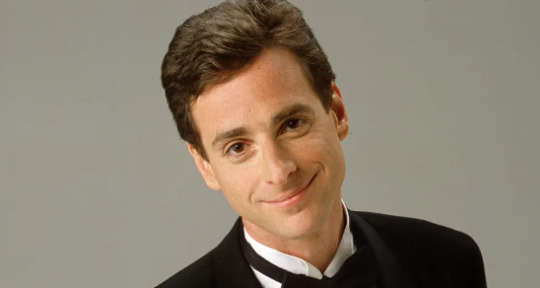

I've also seen someone suggest Christina Hendricks for Ms. Bellum, and I think she has the look down pat. She rocked her role in Mad Men.

For Sedusa, I think Megan Fox or Liz Giles would be great


Amy Acker would be perfect for Ms. Keane imo. Loved her character in Angel
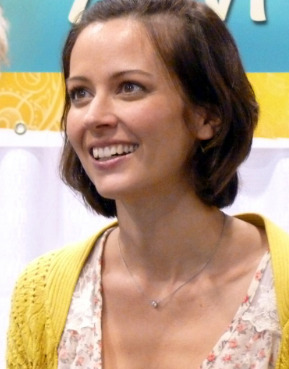
The PPG themselves are honestly super hard for me to cast and I can't think of anyone off the top of my head, but I do think the Live Action show's choice of Dove Cameron for an older Bubbles was a decent one. I could also see Elle Fanning rocking the role.
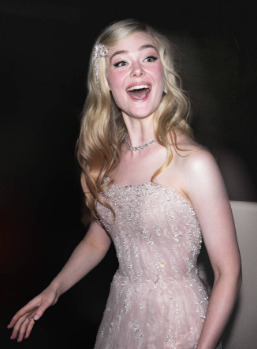
Most of the Gangreen Gang is difficult to think of, but I think Moises Arias for Lil' Arturo would be great
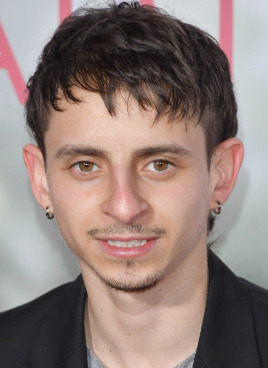
Jake T. Austin also looks a bit like how I'd picture an older human!Arturo

I just discovered her when I was looking around so I haven't seen her act in anything, but Annalise Basso would be perfect for Princess Morbucks

And I know she's not a canon character, but just for fun I do kinda like Maude Apatow for Snake's sister Ivy
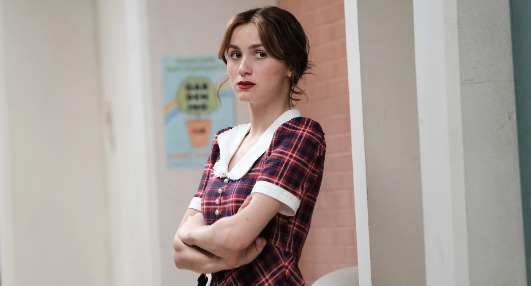
But yeah, that's all I got right now. I'd love to find more, so if you have any suggestions feel free to let me know!
#powerpuff girls#gangreen gang#professor utonium#sara bellum#ms. keane#sedusa#princess morbucks#i know even talking about a live action ppg show is basically fandom heresy at this point but i couldn't help myself#plus i know i've gotten some asks about how i picture the characters so this is probably the closest i'll get to a visual represesntation#bc i can't draw lol#obviously the ages don't always match up perfectly but eh#long post
14 notes
·
View notes
Text


✼⠀⠀.⠀⠀⠀،،⠀SO S!CK⠀┉⠀is a fictional co-ed band formed in new england by its members as an independent act in january 2011. consisting of COREY, DEVIN, KIAN, and BILLIE, the band began playing college bars across the region while simultaneously posting song covers to youtube.
the early beginnings of attention placed on the band were first drawn from their respective universities. with corey and devin both attending yale university, they quickly became established as a popular college band, appearing across new haven before eventually being invited to perform at bars associated with other ivy league schools in the area. with kian joining the band's older members at yale and billie beginning to attended columbia university, their popularity would skyrocket, eventually allowing them to notoriety necessary to rent out a small studio for the formal recording of their first original body of work.
securing their manager, DENVER OWENS, would prove to be instrumental in so sick's rise in national prominence before the band would sign an exclusive recording contract just five years after forming.
though active in both the asian and western markets, the band has notably struggled to grasp commercial attention in south korea. despite this, members corey and kian frequently appear in korean programming due to their status as members of the highly influential kim family. similarly, billie, has become a rising star within vietnamese media, even securing a spot as a judge on vietnam idol in 2023.
&.⠀ʿʿ⠀✹ ﹕ it's all romanticism, nonsense, rottenness, art.⠀⸻⠀MEMBER PROFILES.


CORNELIUS ALFRED KIM, better known by his stage name COREY KIM, was born the eldest son of business mogul charles kim and his wife, gemini inc. chairwoman, johanna yeun kim on july 27, 1993 in hamburg, germany. from a young age corey made it known that he was a square peg in a family of perfectly rounded circles. he was thoughtful to a fault, much too sensitive for the ruthless expertise necessary for the businesses he would inevitably lead in his fathers' stead.
a torublemaker at heart, corey's interest in the heavy rock records he collected on vinyl only initially served as a rejection of his impending responsibilities. convinced musical success could free him from his imagined shackles of affluence, corey was the one to first bring the band together in 2011. undeniably, corey continues to be the glue of so s!ck, often acting as the mediator between the ambitions of devin and the sober rationalities of kian.
✹.⠀⠀،،⠀THE BASICS.
STAGE NAME: COREY
BIRTH NAME: cornelius alfred kim
OTHER NAME: kim jaeyoung
DATE OF BIRTH: july 27, 1993
ZODIAC SIGN: leo
PLACE OF BIRTH: hamburg, germany
HOMETOWN: new york city, usa
ETHNICITY: south korean
NATIONALITY: german & american
LANGUAGES: german, english, korean
✹.⠀⠀،،⠀THE CAREER.
OCCUPATION: singer-songwriter, guitarist
YEARS ACTIVE: 2011 - present
LABEL: kayak72
BAND: SO S!CK
POSITION: frontman, lead vocalist, guitarist
✹.⠀⠀،،⠀THE APPEARANCE.
HEIGHT: 6’2” (188 cm)
TATTOOS: n/a
PIERCINGS: n/a
FACECLAIM: woo dohwan


born and raised the third of five daughters, CHRISTINA XIE has never been a stranger to inconsistencies. from her parents' secret divorce to the six cities she had called home before her 16th birthday, her family was never anchored anywhere long enough for devin to care much for anything.
from a young age, she was quite aware of her surroundings. aware of the tension between her parents, aware of her changing environments, but most importantly: aware of the pressure to succeed. the daughter of two celebrity lawyers, devin recognized very early on that she only ever truly fit in with the other misfit kids who stuck to the back rooms of the fancy galas she couldn't stand.
her family's move to new york city in devin's freshman year of high school brought not only new vices to get high off in the school bathrooms, but also a blossoming friendship with a dark haired boy with darker under eyes and an impressive vinyl collection to match. corey and devin's friendship slowly moved from listening to his grungy recordings of their favorite bands to crafting recordings of their own in euphoric stupors in the early mornings before classes.
though corey would never admit it, devin's slow source of joy in the music they'd made together would eventually lead him to assemble a band of their own the summer before their freshman year at yale. as so s!ck's lead guitarist, devin takes an active role in the composition of the band's music, drawing influence from bands like fleetwood mac, paramore, coldplay, and u2.
✹.⠀⠀،،⠀THE BASICS.
STAGE NAME: DEVIN
BIRTH NAME: christina xie
OTHER NAME: xie ting
DATE OF BIRTH: august 21, 1993
ZODIAC SIGN: leo
PLACE OF BIRTH: santa ana, usa
HOMETOWN: new york city, usa
ETHNICITY: chinese
NATIONALITY: american
LANGUAGES: english, korean
✹.⠀⠀،،⠀THE CAREER.
OCCUPATION: singer-songwriter, composer, lead guitarist
YEARS ACTIVE: 2011 - present
LABEL: kayak72
BAND: SO S!CK
POSITION: vocalist, lead guitarist
✹.⠀⠀،،⠀THE APPEARANCE.
HEIGHT: 5’4” (163 cm)
TATTOOS: thirteen total
PIERCINGS: seven total
FACECLAIM: amber yang

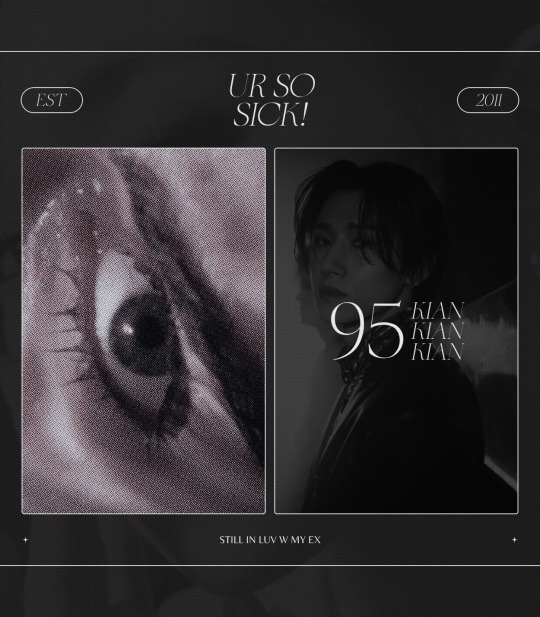
born the second son to charles and johanna kim on october 15, 1995, MARKUS KIM, usually referred to by his middle name, KIAN, often found himself happiest when he was on his own. the title, "corey kim's younger brother" never bothered him much considering the fact that his brother's peers would never be his own. if anything, in kian's mind, he often reversed the misconceptions people had founded about their family based on his older brother.
the overachieving, know-it-all of the family, kian never struggled with knowing what his place was within the family. frequently, he would even find himself picking up the responsibilities corey had left behind in favor of whatever it was he did in the early hours of the morning. he had his mind set on the future much earlier than most even decide what their favorite color was.
his initial interest in music was brushed off by his family who knew better than to believe he had found an interest other than the family business. but as he began to use music as a free release of negative energy, they all began encouraging him to pursue the industry in hopes of what opportunities it might present him. along the way somehow, corey managed to convince kian to join his band. although apprehensive at first, kian joined the band, figuring he would follow in corey's footsteps for once. currently, kian is the bassist of the group, often lending his talents to playing keyboard for the band as well.
✹.⠀⠀،،⠀THE BASICS.
STAGE NAME: KIAN
BIRTH NAME: markus kian kim
OTHER NAME: kim jaehwan
DATE OF BIRTH: october 15, 1995
ZODIAC SIGN: libra
PLACE OF BIRTH: hamburg, germany
HOMETOWN: new york city, usa
ETHNICITY: south korean
NATIONALITY: german & american
LANGUAGES: german, english, korean
✹.⠀⠀،،⠀THE CAREER.
OCCUPATION: singer-songwriter, bassist, keyboardist
YEARS ACTIVE: 2011 - present
LABEL: kayak72
BAND: SO S!CK
POSITION: vocalist, bass guitarist
✹.⠀⠀،،⠀THE APPEARANCE.
HEIGHT: 5’11” (180 cm)
TATTOOS: n/a
PIERCINGS: n/a
FACECLAIM: im changkyun


WILHELMINA HUỲNH was born to her parents on a quiet night in december. that quietness seemed to be a common theme throughout her young life. speaking very sparingly until the age of 5, billie always had an appreciation for stillness. it was often in the stillness that she was able to get away from the constant doting of her parents who were particularly protective over their youngest daughter.
early on, billie ventured into child modeling even being featured by major brands throughout elementary and middle school. although she loved getting all dressed up, it wasn't uncommon for billie to throw silent, pouty fits to her parents' dismay.
always a girl of very few words, her parents enlisted the help of a close friend to teach billie to play the piano. unknowingly, they ushered in a love for music within the young girl that would continue to determine her dreams for at least another decade.
becoming friends with kian kim and his older brother corey in her freshman year of high school proved to be the greatest decision billie ever made. particularly so when corey begged her to join his band after discovering her musical talent. continuing to be a girl of few words, billie is regarded as the most elusive member of the band and therefore, one of the more popular members.
✹.⠀⠀،،⠀THE BASICS.
STAGE NAME: BILLIE
BIRTH NAME: wilhelmina mai linh huỳnh
DATE OF BIRTH: december 27, 1995
ZODIAC SIGN: capricorn
PLACE OF BIRTH: atlanta, usa
HOMETOWN: new york city, usa
ETHNICITY: vietnamese
NATIONALITY: american
LANGUAGES: english, vietnamese, korean
✹.⠀⠀،،⠀THE CAREER.
OCCUPATION: singer-songwriter, drummer
YEARS ACTIVE: 2011 - present
LABEL: kayak72
BAND: SO S!CK
POSITION: vocalist, drummer
✹.⠀⠀،،⠀THE APPEARANCE.
HEIGHT: 5’6” (168 cm)
TATTOOS: n/a
PIERCINGS: n/a
FACECLAIM: lynhci
#⠀✼⠀⠀.⠀⠀⠀،،⠀PROFILE.⠀#ficnetfairy#not obsessed w the graphics#but i'll take them#fictional kpop idol#fictional idol company#fictional kpop company#fictional kpop oc#fictional idol group#fake kpop idol#fake oc#kpop idol oc#krock#kpop#idol au#idol oc#kpop idol#idol#kpop bands
19 notes
·
View notes
Text
Misty’s role in Yellowjackets season 2’s four biggest deaths reveals the dark plan that the wilderness has for her character. Yellowjackets has long established Misty’s strangeness and interest in death, beginning with her teenage character watching a squirrel slowly drown in a pool. Since the crash, teenage Misty’s moral deviations and shocking survival skills have given her a bigger purpose and usefulness with the team, which came in handy again as the survivors faced trouble in the current timeline. Despite the fact that teenage Natalie is crowned the Antler Queen in Yellowjackets’ season 2 finale, Sammi Hanratty’s Misty Quigley has proven she will still stop at nothing to be both accepted and needed by her peers, thus benefiting the wilderness’s bloodthirst.
Yellowjackets season 2 included five tragic deaths across both timelines. In the 1990s, Crystal died when falling off a cliff, though her fate is only known by Misty. Crystal’s demise was followed by the tragic death of Shauna and Jeff’s baby, who died at birth in the wilderness. Shortly after Javi returned from the caves, he died falling through the ice into freezing water, which allowed Natalie to survive the teens’ first official hunt. In the present timeline, Yellowjackets’ season 2 finale saw the deaths of Natalie and Kevyn, the former sacrificing herself to save Lisa and the latter being poisoned by Elijah Wood’s Walter. Four of these deaths share one common factor, which hints at the real reason for a major character’s survival.
Misty Played A Role In Yellowjackets Season 2’s Biggest Deaths
Misty has already been pinned as the most dangerous killer in Yellowjackets, and the big deaths in season 2 confirm this assessment. While not all kills were at her hands, Misty played a role in the four biggest deaths of season 2, which will all have huge consequences in Yellowjackets season 3. Misty all but pushed Crystal off the cliff in Yellowjackets season 2, episode 5, as Crystal was prepared to tell the others about Misty destroying the plane’s black box. While it may not have been her plan, Misty then backed Crystal off the cliff until she fell to her death, later telling the other survivors that she lost Crystal in the snowstorm.
Misty was also partially responsible for Javi’s death in Yellowjackets season 2, episode 8. When Javi was drowning, Misty purposefully stopped Natalie from trying to rescue him, knowing that Natalie would live in his stead. Misty didn’t push Javi into the water, but she was the one who sealed his death. In the present, Christina Ricci’s Misty killed adult Natalie, though her intended target was Lisa. Misty’s best friend Natalie stepped in front of Lisa at the last second, leading Juliette Lewis’s character to die from a phenobarbital injection. Meanwhile, Detective Kevyn Tan was killed by Misty’s boyfriend Walter, who killed him to cover up Misty’s other crimes. Misty may not have ordered Walter to kill Kevyn, but his death was planned to protect her.
Yellowjackets' Season 2 Deaths Reveal The Wilderness Is Using Misty To Procure Sacrifices
Intentionally or not, Misty procured the wilderness with four sacrifices in Yellowjackets season 2. The wilderness feeds on the blood and darkness of the survivors, which Misty has long embraced. While other Yellowjackets characters were more hesitant to take another life or perform sickening actions after the crash, Misty never wavered, and did so without resistance in the name of survival. The wilderness had seen something in Misty ever since the plane went down in 1996, and has been using that darkness which has always been kept close to the surface to satiate its hunger.
With Misty being so influential in Yellowjackets season 2’s deaths, the wilderness can’t afford to let her die in either timeline. She’s far too valuable in procuring sacrifices, even if it isn’t her hand doing the killing. It’s no coincidence that teenage Misty begins to panic when trying to deliver Shauna’s baby and seeing her hands covered in blood; after Crystal’s death, Misty’s hands would never be clean of blood. Upon accepting her role and casting away her guilt, Misty becomes far more integral to the fatal sacrifices in both timelines. Misty doesn’t have to wear the Antler Queen’s crown to be chosen by Yellowjackets' wilderness, as it needs her darkness and devotion to survive.
One Yellowjackets Season 2 Death Parallel Reveals A Tragic Misty Detail
Death has always followed Misty since Yellowjackets’ plane crash, even impacting those she loves the most. Not only does Misty already struggle to make and keep friends in both timelines, but once she finds a best friend, she also has a habit of accidentally killing them. Misty’s first kill is her best friend Crystal, who kept her company throughout Yellowjackets season 2 until falling off the cliff. Misty wouldn’t have another best friend until reuniting with Natalie in 2021, with their friendship also ending because Misty accidentally killed her. All that Misty wants is to feel loved, accepted, and needed, but Natalie and Crystal’s Yellowjackets season 2 deaths confirm the tragic truth that she keeps herself from attaining this dream.
18 notes
·
View notes
Text
Nightmare Warehouse, day 12 - I saw @starshipblueberry yesterday at a Halloween party, and I grabbed her arm in the middle of everything and said, "Tomorrow is -"
And she grinned and nodded and said, "THE day!"
Enjoy The Day!
They meet again on the graveyard hilltop, the one that seems eternally bathed in moonlight.
“No,” Helena says, firmly. “This is not the right place. It’s too exposed. Nothing wants to be born here.”
Sally nods. "I might know a spot."
Sally scoots over and pats the space next to her on the sleigh. Jack unfolds like a spider and crawls in, and Helena curls into the space left under Myka's arm. Zero yaps and rides out in front. Santa stands and holds tightly to the back.
"Myka?" It's Jack's voice, always, now, but Helena's lilt at the end of her name.
"Mmm?" It takes two hands and some concentration to guide the reindeer. They are skittish in this world, or maybe every world.
"If you can't… I understand if this is not something you can do. If you need to step aside. This is not your child. And I realized I've hijacked one story, or possibly two."
"No, she's not my child."
Helena winces, waiting for what's to follow.
"But I can see that this is maybe the only world where this is possible. I'm here with you for that possibility. And for… for whoever we are to each other. Might be, to each other."
Helena simply nods, and tucks her bony skull into the soft place under Myka's ear. Sally hands Jack one of the reins.
***
The place, when they reach it, makes Jack gape.
"Sally? Have you…?"
Sally shrugs. Her smile is sly and cheeky. "The tower room isn't very cozy."
Set into a gulley, the structure looks as if a beaver dam was constructed almost entirely of fabric. Yarn-covered sticks poke up at odd angles. Quilts covered with leaves line the domed surface. Sally lifts up a heavy brocade curtain to reveal the simple room hidden behind.
Inside, it smells like moss and loam and something faintly herbal. It's surprisingly warm. Rounded stones, poked into the soft dirt the ancient river left in its stead, make up what’s visible of the floor. More quilts, thrown onto pillows, cover most of the surface.
Helena nods gratefully. "Thank you, Sally." She sinks onto a cushion.
Santa stands in the center. "Are you ready to start? This begins with you, Helena." He holds out his toy bag towards her.
What Helena pulls out hand over hand is slightly grayed, but even so, the sight of it makes her still. "Is this…? I asked for this so long ago." Her thumb and index finger pinch an edge and worry it gently.
Santa's smile is cheeky. "You can't hide anything from Santa, Helena. If you dug around deeper, you might even find the helium tank."
Helena hands the fabric over to Sally, her cheeks wet. Sally shakes it out, appraisingly.
The hum of the sewing machine should be dampened by the layers of fabric that line the room. Instead, it fills the space, gradually, until the room itself thrums like a beehive.
Helena and Jack assemble Christina on the floor. When all the pieces are in their place, they stare.
"How did that happen?" Helena whispers. It's inaudible over the honeyed humming, but that hardly matters.
"Not to worry," Jack replies, pulling at his chest, filling in the missing rib. "I can share."
Sally turns her work inside out. So complicated compared to her pattern, with all the tiny toes.
You remembered the nose, right? Myka's concern makes Sally chuckle.
Of course. And the ears, and eyelids.
They lay the silk out like a sleeping bag, then tuck in the bones. They gather the leaves scattered on the floor and stuff them in the empty spaces.
Helena sews up the center seam herself. "Like a belly button," she whispers.
Sally's hand reaches out to stay Helena’s, just before she closes the body up. "Wait," she says, picking open a seam on her wrist, plucking out a single leaf. "For luck," she says, kissing it, pushing it into the ribcage with a crinkle.
Everyone looks at Helena expectantly. "The doctor," she explains, "has for this phase many charts, with voltage and pressure points. He waited for a storm to do his magic for him. And don’t have that equipment, or the luxury of time, either."
"But I have a feeling," she continues, not looking away from the figure lying prone in front of her, "that children in both worlds are made more similarly than we might have supposed at first glance."
"After all, are children not born of the dreams of their parents?" She runs her fingers along the silk skin.
"Are they not of our bodies," and she touches where Jack's rib is no longer, "and of the earth?" Sally, holding her wrist closes, nods to herself.
"And most importantly of all, they must wish for themselves to come into being." Helena leans down and whispers something straight into the silk ear. Nobody else can tell exactly what's said, but they can hear the tone of a mother gently waking a sleeping child.
But the child does not stir.
Helena whispers again.
The child remains still.
Helena rocks back into her heels. Her voice is quiet, barely audible above the hum. Quiet, and broken. "So there's something missing, after all. I was certain I could call her back but - but there's nothing. This isn’t her. This is just a doll, a grotesquerie, a horror. And I helped make it."
"Perhaps," she says, her voice rising to a panicked wail, "perhaps none of it is enough, after all."
Myka crumples up next to her, her arm out for Helena's shoulder. Helena flinches away violently and Myka draws her hand back.
The curtain flies open then, and a figure stands illuminated in the doorway.
"What? Did you think you'd just slip this by me?" roars the voice, too loud for the space. Deep, and full of rage. "You can't make a dupe out of me!"
Jack rises and folds his arms across his chest. Sally's mouth is set in a hard line.
Pete grins like an idiot, and waves. "Oh hey, Artie! You got out! What's up, my man?"
But Oogie ignores him. Steve, Claudia and Leena huddle behind Artie in a cluster, barely showing around the mass of squirming burlap.
"I can't believe you didn't think to ask me about this first, you idiots," Artie says.
Myka's ready for the hammer blow, for fire and brimstone and suspensions at minimum, but instead his eyes are filled with fear.
"Tell me," he says, still too loud, "tell me you didn't put anything alive in there."
Helena blinks. "What?"
"This poor bag of bugs is completely insane, and who could blame him," Artie growls. “I can hear them,” he gestures to himself, “every single one of them, and all they want is a bigger hive and more friends. Whoever made him is a monster. Tell me, Agent Wells. Tell me you did not do that to your child. Because if that’s what it takes, it’s not worth it.”
Helena shakes her head. "She is leaves and bones. Leaves, bones, and… love,” she adds, choking on the word. “But no life."
He squints. “And a lot of silk.”
Helena nods, miserably.
“Did you give her breath?” a small voice asks from behind the towering figure of Artie.
Everyone turns. Lock, Shock and Barrel stand forgotten in the doorway. Barrel takes off his mask. “You know,” Leena says, “just to get her started. Isn’t that the first thing a baby does, when they’re born?”
Jack grins. “Not in our world. But this is something new.”
He bends down and blows, then frowns. “I don’t think I have a breath. Or lungs,” Helena adds.
Santa tries next. “I’m not from here, after all,” he points out. But the child lies still.
A tear rolls down Helena’s cheek. Jack wipes it away and hugs himself.
Silence falls among the group.
Then Sally blinks once, twice, and cocks her head. “Shh,” she murmurs. Then - “Helena, we have to move her outside.”
“But -” Helena starts, “but she’s so… I don’t know if I can bear to - ”
Jack reaches down long arms. “Come on, little one, up we go.”
Sally leads the way, out the door, around the outside of her sanctuary. “Here,” she directs, when they come to a clearing in a stand of dead trees. “Right here.”
“Now back up. All the way to the treeline.” Myka waves her hand once, dismissively. “We need space.”
Myka sinks down to her knees, next to the shining, silken body. She closes her eyes and listens.
Ready?
Ready.
A wind whistles through the forest. Leaves rustle, then begin to fall from the trees. They rain down on the figures in the clearing, then begin to spin, whip around. The sound is incredible, like a thousand rain sticks, like a hurricane. Like blood rushing through veins.
Myka and Sally sit perfectly still, eyes closed.
Sally leans down, her lips an inch away. Myka draws the wind into their body.
They breathe out.
The wind ceases immediately. The leaves fall in one swift shower, carpeting the clearing.
Something rustles.
The world holds its breath.
Christina sits up.
A strangled sob echoes into the clearing. A spidery figure flies into the center, barely skimming the ground.
Myka sits back. Helena skids on her knees to a stop in front of Christina.
“Darling? It’s me - but I must look - are you - ” Helena’s voice is tremulous, full of wonder, as tight with tension as a piano string.
“Mum!” Christina shrieks, and throws her arms heedless around Helena laughing, laughing, and one final wind wails through the forest, carrying the leaves away, bringing the faint scent of apple and cinnamon.
#bering and wells#myka bering#helena wells#warehouse 13#hey hey everyone's here#my fic#collab post#nightmare warehouse#christina wells
7 notes
·
View notes
Text
Up, Up And Out: Interviews With A Queer Superhero by Christina Cabello
Invincible is certainly one of the most well-known heroes of his generation; be it from his participation in major events such as the invasion by the Flaxans and the takedown of the major mafia leader Machine Head, or his unfortunate relation to and subsequent battle with the hero-turned-mass murderer Omni-Man. Despite all of these things, the hero recently decided to do something that some would consider truly brave: he came out.
And he did so quite publicly, engaging in a make-out session with Guardians Of The Globe member Rex Splode, who came out as bisexual immediately afterward. He declined to further comment however, citing: ‘I could only give you and your readers a terrible impression of myself’, unlike his boyfriend who is now the sole subject of this article.
My first interview was at a government-organised press party, mere days after the public reveal. After fighting my way through a crowd of much more qualified people than myself, I managed to score a couple of minutes with the couple and my trusty Dictaphone. It was short and not as informative as I would’ve liked, but I managed to learn a couple of key details: firstly, that Invincible firmly identified as pansexual, something that certainly made me feel represented in the community I report on so often. Secondly, that Rex Splode became a completely different person around his significant other. The guy that so many had come to expect to be an abrasive, crass jerk was completely absent, and in his stead stood a kind, considerate man, one who seemed comfortable giving up the spotlight and only answered one of the questions I posed.
Thankfully, the second interview was far more informative, fresh off the heels of his victory against the villainous scientist Doc Seismic. This time, I was able to get an actual, if slightly limited, look into the psychology of the man behind the goggles: we talked about his origins (or at least the parts he was comfortable telling me), how his father’s actions had affected him and his mother, including a line about he’d trained in mental health first aid, and other things. However, when we eventually got back to the topic of his sexuality, he said something that stuck with me for a long time afterwards: ‘I guess... it helped make everything make sense, y’know? Once I had myself figured out for the most part, it was a relief, like a weight was gone from my shoulders. It helped me to deal with a lot of other problems, as well. So pretty good, in my opinion!’
In my honest opinion of the guy, he seems to me to be a mix of all eras: the positivity and optimism of a Golden Age WW2 hero à la Frontline or Soprano, with the charm and confidence of a quippy Silver Age crimefighter, all within the trappings of a young, modern and progressive super, resulting in a man who knows what the right thing to do is without a doubt in his mind. He embodies the best parts of those who came before, mixed with the good qualities that really give you hope for the future. In summary, Invincible’s popularity isn’t down to him being new or having a really good colour scheme. It’s because he may just be one of the greatest heroes alive. Whether or not that turns out to be true, I’m not sure, but this reporter definitely has faith in him.
#told you you’d see her soon#hope you guys like this one!#invincible#invincible show#invincible amazon#invincible oc#christina cabello#mark grayson#cape-watch
14 notes
·
View notes
Text
The best games of 2024 so far
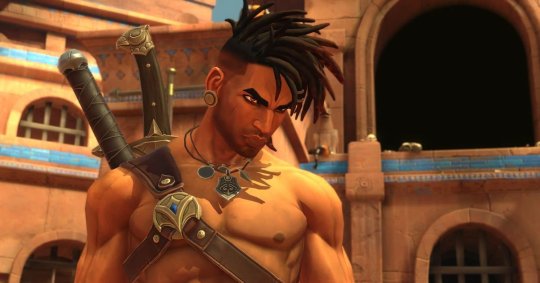
Video games are bizarre once more!
Don’t get us mistaken, 2023 was an all-timer. We acquired new Zelda and Mario. Armored Core and Baldur’s Gate awakened from cryogenic sleep. Alan Wake rose from its plot within the Video Sport IP Cemetery, whereas Road Fighter 6 acted like Road Fighter 5 had by no means occurred. However whereas 2023 was an unforgettable 12 months for iconic franchises, it wasn’t a stunning one. No person was underestimating Nintendo, FromSoftware, and Capcom.
2024, however, has been unpredictable! Our favourite video games embody a gun-wielding Pokémon parody, a surprisingly standard sequel in a very totally different style than its little-played predecessor, and a large RPG the place a reformed yakuza recreates Animal Crossing with perverts and rubbish dumps.
It is a 12 months for the true sickos (it’s us, we’re sickos) — those who really feel their pores and skin tingle and their pupils widen after they see “7/10” on the backside of a assessment. That is the one that doesn’t need a pitch-perfect remake of Final Fantasy 7; they need Final Fantasy 7 tossed right into a cosmic blender and funneled down their gullet.
It could be a decade earlier than we see one other 12 months like 2023, however that’s okay by us. And not using a basic entry in a beloved franchise launched each month, there’s room for the brand new, the bizarre, and the surprising.
The video games on this checklist will likely be sorted in reverse chronological order, so the latest releases will all the time present up first. We even have a brief part on the finish dedicated to late 2023 releases we didn’t have the time to think about for final 12 months’s best-of checklist.
The very best games of 2024 , thus far
Lysfanga: The Time Shift Warrior

Picture: Sand Door Studio/Quantic Dream
The place to play: PC
Lysfanga is a single-player sport for individuals who want they have been higher about scheduling time for multi-player video games. Set in an historic kingdom, a squad of heroes should work collectively to obliterate baddies and remedy puzzles. The twist: One participant controls all of the characters by layering one run by way of an area atop of one other. And one other. And one other, one other, and...
Every struggle takes place in an area crowded with too many enemies to squish inside the struggle’s restricted period of time. When the clock strikes zero, the battle doesn’t finish; it restarts. Now, the participant is supported by an AI accomplice recreating their earlier run. Time and again, the participant repeats this course of, amassing a mob of clones that assist them get by way of the extent. The actual enjoyable isn’t the fight, however fixing little puzzles that require a number of copies of your self to flip switches and launch highly effective assaults at exactly the identical time. In these moments, you are feeling much less like a hero and extra just like the world’s most interesting choreographer. —Chris Plante
Banishers: Ghosts of New Eden
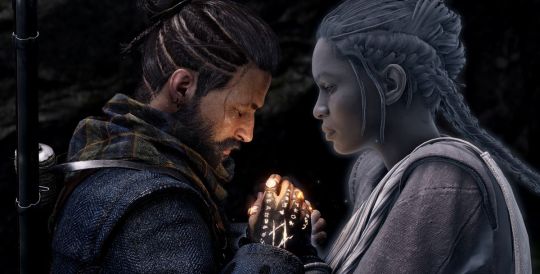
Picture: Don’t Nod/Focus Leisure
The place to play: PlayStation 5, Xbox Series X, PC
Australian creator Christina Stead as soon as wrote that each love story is a ghost story, a phrase that completely encapsulates the gothic romance custom so richly explored in literature however not often in video games.
Banishers throws itself at this notion, casting gamers as Purple and Antea, a pair of exorcists despatched to colonial New England to take care of a haunting that shortly goes awry. Antea is killed, and over the course of the sport, Purple should determine to comply with love or responsibility, both banishing her ghost to the afterlife or utilizing his occult information to resurrect her.
Banishers is a sluggish, thought-about RPG that contemplates the numerous methods a spot may be haunted, with a horrible query offering its emotional throughline: Are you working in direction of a reunion, or an extended goodbye? —Joshua Rivera
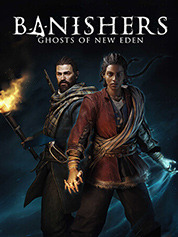
PC Version $41.99
Helldivers 2
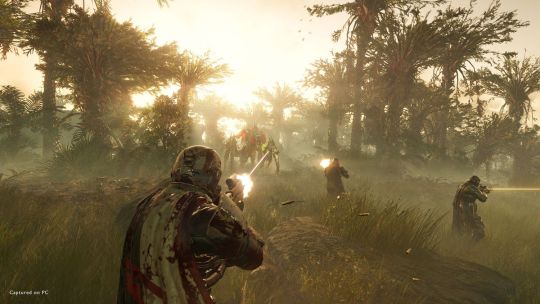
Picture: Arrowhead Sport Studios
The place to play: PlayStation 5, PC
Helldivers 2 is among the 12 months’s finest surprises, utterly reinventing the method of the unique sport to create a hilarious and addictively enjoyable squad shooter that seems like one of the best Starship Troopers sport you would presumably ask for.
A lot of the sport’s humor comes from its over-the-top satire of Tremendous Earth and its aim to unfold democracy by way of bullets and hellfire. However Helldivers 2 additionally makes use of ragdoll physics and pleasant fireplace to create hilarious moments throughout playtime, not simply within the narrative dressings.
And it’s simply rewarding to play. With interlocking gameplay loops, satisfying capturing mechanics, and depth from the stratagem system and the sport’s various enemies, it’s probably the greatest shooters of the 12 months. Don’t miss it. –Pete Volk
Like a Dragon: Infinite Wealth

Picture: Ryu Ga Gotoku Studio/Sega
The place to play: PlayStation 5, PlayStation 4, Xbox One, Xbox Series X, PC
A sprawling RPG with a coronary heart of gold, Infinite Wealth continues the Like a Dragon (née Yakuza) franchise’s dedication to earnest narratives in regards to the energy of friendship, selection in play, and ridiculously foolish enjoyable.
Infinite Wealth’s story stretches throughout Hawaii and a number of cities in Japan, with a seemingly limitless array of actions. There’s the standard buffet of bite-sized minigames: sports activities video games, card video games, courting video games, collectible video games, and so forth. However the trio of the Animal Crossing-inspired Dondoko Island, the Loopy Taxi-inspired Loopy Eats, and the hilarious returning Pokémon parody Sujimon are enjoyable, partaking, and deep sufficient to justify their very own spots on this checklist. They usually’re all only a half of the Infinite Wealth expertise.
On the coronary heart of all of it is nice Ichiban Kasuga, all the time relentlessly optimistic and supportive of nearly everybody, to the purpose that he’s repeatedly making his enemies into life-long buddies. And whereas Infinite Wealth isn’t technically an anthology story, it has one thing in widespread with them: When you don’t like what you’re at present doing, simply wait a bit. You’ll be doing one thing utterly totally different quickly. –PV
Tekken 8

Picture: Bandai Namco
The place to play: PlayStation 5, Xbox Series X, PC
Tekken 8 is a smorgasbord of acquired tastes crammed right into a blender and set to overdrive. with a clown automotive roster full of edgelord OCs, babes, and bears. There’s a limb-based button format and transfer lists that appear to scroll perpetually, with an entrancing backing monitor of pulsing, aggressive rave beats. And bears! Did I point out the bears? There are two of them.
Whereas the current Road Fighter 6 appears to have been thoughtfully designed to be essentially the most broadly interesting combating sport ever, Tekken 8 has set its sights on being essentially the most Tekken combating sport ever. And boy, did it succeed! —Patrick Gill
Palworld
Read the full article
0 notes
Note
if you're going to read 'Go Tell It On The Mountain' also get a copy of 'Giovanni's Room' (Baldwin's second novel, 1956. My personal fave.)
also, while I'm here.. 'Wise Blood' (1952) by Flannery O'Connor, 'Two Serious Ladies' (1943) by Jane Bowles, 'Nightwood' (1936) by Djuna Barnes, 'Other Voices, Other Rooms' (1948) by Truman Capote, 'Good Morning, Midnight' (1939) by Jean Rhys, 'The Man Who Loved Children' (1940) by Christina Stead, 'Lolly Willowes' (1926) by Sylvia Townsend Warner.
Thank you these are great suggestions! I’ve read maybe half of these but loved them all💕
1 note
·
View note
Text
Efemérides literarias: 17 de julio
Nacimientos
1888: Shmuel Yosef Agnon, escritor ucraniano-israelí (f. 1970).
1888: Milán Füst, escritor húngaro (f. 1967).
1901: Bruno Jasieński, poeta polaco (f. 1938).
1902: Christina Stead, escritora australiana (f. 1983).
1913: Roger Garaudy, filósofo y escritor francés (f. 2012).
1922: Donald Davie, poeta y crítico literario inglés (f. 1995).
1925: Carlos París, profesor de filosofía y…

View On WordPress
0 notes
Text

Alredered Remembers Australian novelist Christina Stead, on his birthday.
"If all the rich people in the world divided up their money among themselves, there wouldn't be enough to go around."
Christina Stead
0 notes
Text
Birthdays 7.17
Beer Birthdays
James Pawley Dawes (1843)
Anthony Straub (1882)
Joshua Bernstein (1978)
Five Favorite Birthdays
James Cagney; actor (1899)
Erle Stanley Gardner; writer (1889)
Vince Guaraldi; jazz pianist (1928)
Peter Schickele; music comedian, composer (1935)
Donald Sutherland; actor (1934)
Famous Birthdays
Berenice Abbott; photographer (1898)
Shmuel Yosef Agnon; Ukrainian-Israeli writer (1888)
Ron Asheton; guitarist and songwriter (1948)
John Jacob Astor; zillionaire (1763)
Lou Barlow; guitarist and songwriter (1966)
George Barnes; guitarist and songwriter (1921)
Alexander Gottlieb Baumgarten; German philosopher (1714)
Luc Bondy; Swiss film director (1948)
Tim Brooke-Taylor; English comedian (1940)
Mark Burnett; television producer (1960)
Geezer Butler; English bass player (1949)
Diahann Carroll; actor (1935)
Niccolò Castiglioni; Italian composer (1932)
Elizabeth Cook; singer and guitarist (1972)
John Cooper; English car designer (1923)
Chris Crutcher; writer (1946)
Spencer Davis; rock musician (1942)
Paul Delaroche; French painter (1797)
Phyllis Diller; comedian (1917)
Cory Doctorow, Canadian author (1971)
Lyonel Feininger;, German-American painter (1871)
Lionel Ferbos; trumpeter (1911)
Wolfgang Flür; German musician (1947)
Wendy Freedman; Canadian-American cosmologist and astronomer (1957)
Elbridge Gerry; politician (1744)
Sergei K. Godunov; Russian mathematician (1929)
Gordon Gould; laser inventor (1920)
David Hasselhoff; actor (1952)
Hermann Huppen; Belgian author and illustrator (1938)
Bruno Jasieński; Polish poet and author (1901)
Scott Johnson; cartoonist (1969)
Darryl Lamonica; Oakland Raiders QB (1941)
Nicolette Larson; singer-songwriter (1952)
Thé Lau; Dutch singer-songwriter and guitarist (1952)
Georges Lemaître; Belgian priest, astronomer, and cosmologist (1894)
Art Linkletter; humorist (1912)
Pierre Louis Maupertuis; French mathematician and philosopher (1698)
Robert R. McCammon; author (1952)
Angela Merkel; German chemist and politician (1954)
Craig Morgan; singer-songwriter and guitarist (1965)
Luis Munoz-Rivera; Puerto Rican patriot, poet (1859)
Frank Olson; chemist and microbiologist (1910)
Barbara O'Neil; actor (1910)
Mary Osborne; guitarist (1921)
Quino Spanish-Argentinian cartoonist (1932)
Christiane Rochefort; French author (1917)
Jason Rullo; rock drummer (1972)
Jimmy Scott; jazz singer (1925)
Ephraim Shay, American engineer (1839)
Phoebe Snow; singer (1952)
P.J. Soles; actor (1950)
Red Sovine; country singer (1917)
Christina Stead; Australian author (1902)
J. Michael Straczynski; writer (1954)
Mick Tucker; English rock drummer (1947)
Isaac Watts; English hymnwriter (1674)
Alex Winter; actor (1965)
0 notes
Text
Hunting lesson rose taipan

#HUNTING LESSON ROSE TAIPAN HOW TO#
#HUNTING LESSON ROSE TAIPAN SERIES#
#HUNTING LESSON ROSE TAIPAN FREE#
Sophia Maria McKennan, born May 10, 1947, Wangaratta, Victoria. Ellen Rose Croft, born in Ipswich, Queensland, under the sign of Pisces. Terese-Avila Quenelle, born July 20, 1955, Quebec, Canada. Pamela Ruth Scarf, born in Caulfield, Victoria, under the sign of Scorpio. Oona Strider, born Febuary 21, 1938, Perth, Western Australia. Nisaba Diana Kirby, born April 10, 1921, Manchester, England. Mary Joanne Monday, born June 5, 1941, Melbourne Victoria. Monica Lesley Nicholson, born September 25, 1951, Alice Springs, Northern Territory. Katharine Tasma McMillan, born June 29, 1922, Hobart, Tasmania. Janice Judith Jansen, born August 5, 1940, Christchurch, New Zealand. Iona Josephine Flynn, born March 16, 1947, Healesville, Victoria. Helen Hoffman, born January 7, 1945, Union City, New Jersey, U.S.A. Grundhilde Schmidt, born September 15, 1955, Zurich, Switzerland. Frances Veronica Furriskey, born November 9, 1947, Mildura, Victoria. Elsa Hannah Gluck, born April 26, 1952, Springvale Victoria.įRANCES. Dawn Nerida Clancy, born Phillip Island, Victoria, under the sign of Aquarius.ĮTAMA. Cerridwen Colleen Flynn, born Rio de Janiero, Brazil, January 25, 1960.ĭAWN. Beatrix Unsdatter, born in Denmark under the sign of Libra, parents migrated to Australia in the middle fifties.ĬERRIDWEN. Alice Audrey Farr, born Mosman, Sydney, New South Wales, on August 1, 1956.īEATRIX. This book is dedicated to those who helped me write it.ĪRACHNE. The I becomes an alphabet, the my becomes ours. Thus my ideas weigh with those of others. I absorbed it all with gratitude and worked with a discipline and strength I felt I owed them. Throughout the many drafts, I had readers, arguers, encouragers, critics and researchers who worked for the book, the idea, their own reasons, with implicit faith in my purpose to uncover a truth to tell the truth and not resort to a gossipy theft of their ideas and their lives. The merging of the diagrammatic and chaotic was a poem. It is dependent on inspiration, excitement, the tides of language and having the time. That was to ensure a symphonic and historic depth.
#HUNTING LESSON ROSE TAIPAN SERIES#
The first draft was a series of diagrams, and nouns. The daring to make a novel from geometry was possible in the rarified air of a ‘sinecure’. Christina Stead had given me two clues with her mention of maths and ‘no men in it at all’. ‘Everywoman’ was women the singular does not compute when one investigates the nature of the feminine.Ī worker, no longer a taxi-driver, now a writer with an office and a title, albeit for ten weeks, my job, then, was to put my theories into practice: a daunting project when it became clear to me what I had to do. It was necessary to get to know a mob of women, all searching for their own freedom. I could not squeeze this ‘everywoman’ out of my mind. Simply screening an accurate description of one’s life with a facade of false names and places was not satisfying to me either as a writer or a reader. Fiction is a literary composition wherein the writer creates above, below and around the real world. I was sick of sorry women, in my own and others’ stories, who were not in control of their own downfall.
#HUNTING LESSON ROSE TAIPAN FREE#
I had been hunting for an ‘everywoman’, the free archetypal female, to underlie a possible Hamlet, Peer Gynt, Candid of my gender. Since 1974 I have been developing theories of the feminine aesthetic in literature.
#HUNTING LESSON ROSE TAIPAN HOW TO#
Two or three years later, I was writer-in-residence at Monash University, wondering what and how to write, suffering the culture shock and absurdity of changing from ‘taxi-driver’ to ‘writer’. But she took me to lunch at Monash University, where she was writer-in-residence, and discussed the mathematical aspects of my first chaotic attempt at long fiction, Lots Of Potential. Perhaps Remember The Tarantella started with Christina Stead’s challenge to me: it’s very difficult to make an interesting novel with no men in it at all. Publication assisted by the Literature Board of the Australia Council, the Federal Government’s arts funding and advisory body.

0 notes
Photo

Literary history that happened on 17 July
#july 17#literary history#literary#history#literature#on this date#erle stanley gardner#gerard manley hopkins#william somerville#christina stead
126 notes
·
View notes
Text

About myself - no. I'm unimportant, an observer, a wandering animal.
// Christina Stead
#venice#venezia#distance#observer#street photography#travel photography#photography#ph#christina stead#quote#q#people watching#Italy#italia#canals
93 notes
·
View notes
